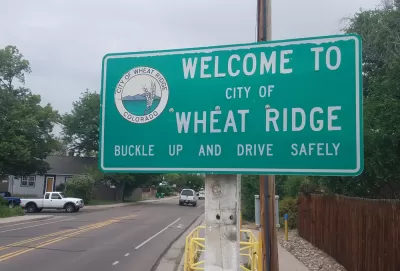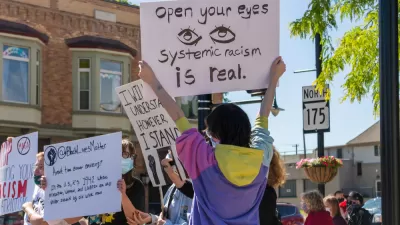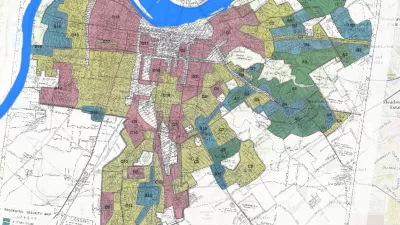A symbolic, but necessary, action.

The Denver suburb of Wheat Ridge City Council recently approved a resolution declaring race- and religion-based covenants ‘illegal and unenforceable,’ according to an article by John Aguilar for the Denver Post.
According to Aguilar, the resolution “directed staff to find city-owned properties that might have such stipulations and remove them from real estate records. The city also pledged to ‘prepare and make available to private property owners the materials to remove such covenants as permitted by statute.’”
As noted by Aguilar, Wheat Ridge is one of the first municipalities in the state to produce such a resolution, although some states, such as Connecticut, have recently passed legislation to the same effect.
“To some, Wheat Ridge’s efforts might seem unnecessary and redundant given the U.S. Supreme Court’s Shelley v. Kraemer ruling in 1948, which struck down race and religion-based covenants as illegal. The court’s opinion was further codified 20 years later, when the Federal Fair Housing Act banned race-based deed restrictions once and for all,” writes Aguilar. While conceding that the resolution passed unanimously by Wheat Ridge leaders on Monday evening is largely symbolic, [Wheat Ridge Mayor Pro Tem Rachel] Hultin said it is important to acknowledge and address the outwardly racist policies that shaped housing policy in Colorado, and the country as a whole, for decades.”
FULL STORY: Wheat Ridge revisits racist history in housing policy, “untying these nasty, nasty knots”

Maui's Vacation Rental Debate Turns Ugly
Verbal attacks, misinformation campaigns and fistfights plague a high-stakes debate to convert thousands of vacation rentals into long-term housing.

Planetizen Federal Action Tracker
A weekly monitor of how Trump’s orders and actions are impacting planners and planning in America.

In Urban Planning, AI Prompting Could be the New Design Thinking
Creativity has long been key to great urban design. What if we see AI as our new creative partner?

King County Supportive Housing Program Offers Hope for Unhoused Residents
The county is taking a ‘Housing First’ approach that prioritizes getting people into housing, then offering wraparound supportive services.

Researchers Use AI to Get Clearer Picture of US Housing
Analysts are using artificial intelligence to supercharge their research by allowing them to comb through data faster. Though these AI tools can be error prone, they save time and housing researchers are optimistic about the future.

Making Shared Micromobility More Inclusive
Cities and shared mobility system operators can do more to include people with disabilities in planning and operations, per a new report.
Urban Design for Planners 1: Software Tools
This six-course series explores essential urban design concepts using open source software and equips planners with the tools they need to participate fully in the urban design process.
Planning for Universal Design
Learn the tools for implementing Universal Design in planning regulations.
planning NEXT
Appalachian Highlands Housing Partners
Mpact (founded as Rail~Volution)
City of Camden Redevelopment Agency
City of Astoria
City of Portland
City of Laramie





























